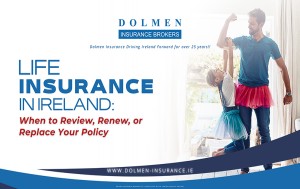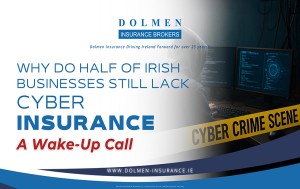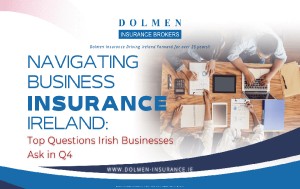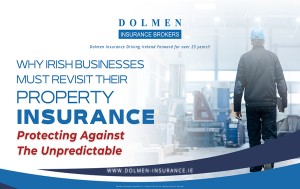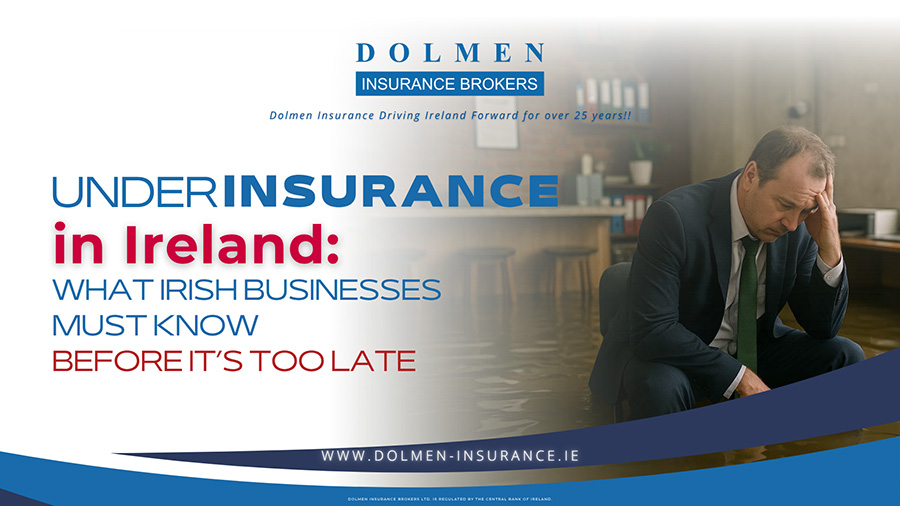
Most Irish business owners purchase insurance with a sigh of relief. It’s a box ticked off the to-do list. The paperwork is signed, and the policy is in place. Understandably, attention then turns to running the business, serving clients, managing staff, meeting targets. Yet one critical risk often goes unnoticed: underinsurance.
While it might seem like a technicality, underinsurance can devastate a business when disaster strikes. It creates a dangerous gap between what you expect from your policy and what you’ll actually receive in a claim. And in Ireland, it’s more common than many realise.
What Is Underinsurance?
In simple terms, underinsurance occurs when your cover does not reflect the actual cost of replacing or repairing what’s lost. For example, if your policy covers €60,000 worth of equipment, but you really own €100,000 worth, you’re underinsured. In the event of a fire, flood, or theft, you may receive only a partial payout. That difference must be paid out of your own pocket.
Even more concerning, this problem often goes unnoticed until it’s too late. Policies are signed, premiums are paid, and then they’re forgotten. However, just because you have a policy doesn’t mean you’re properly covered.
Why Is This a Growing Problem in Ireland?
Underinsurance isn’t just an abstract risk, it’s a growing issue in Ireland. Rising property costs, higher rebuild expenses, and inflation have made it harder for policies to keep pace with real-world values. Additionally, many Irish businesses have expanded significantly since they first took out their insurance. New assets, staff, locations, and risks may not be reflected in outdated policies.
According to leading Irish insurers, one in three small businesses may be underinsured. For many, it’s not deliberate. Instead, it’s a result of inattention, assumption, or cost-saving measures.
Let’s explore how this happens.
Common Reasons Irish Businesses Become Underinsured
1. Failure to Update the Policy Over Time
This is by far the most common cause. Businesses grow, evolve, and diversify. But insurance policies often stay the same year after year. If you’ve added stock, upgraded your machinery, hired more staff, or moved premises, your risk profile has changed. Without updating your cover, you may be seriously underinsured.
2. Inflation and Rising Replacement Costs
Ireland has seen steady inflation in construction and labour costs. The price of rebuilding a commercial unit today may be 20–30% higher than five years ago. If your cover hasn’t increased with those costs, it’s no longer enough. The same goes for tools, IT systems, and inventory.
3. Trying to Save on Premiums
It’s understandable to seek savings, especially during uncertain times. But choosing a lower cover amount to reduce your premium can backfire. If a claim arises, the payout may fall well short of the actual loss, costing you far more than the savings ever gained. Talk with our business team and discuss how our tailored policies can help ensure you only pay for what you really need.
4. Misjudging the Likelihood of Loss
Many business owners feel that worst-case scenarios are unlikely. Fires, floods, cyber attacks, and lawsuits may seem distant. But when they happen, and they do, those without adequate cover face severe consequences.
Who Is Most at Risk?
While underinsurance can affect any business, certain types are more vulnerable:
- Retailers and wholesalers: Inventory levels change frequently, and values can rise without notice.
- Trades and construction: Equipment and tools are expensive. If left unreviewed, they may be severely undervalued.
- Hospitality: Restaurants, cafes, and pubs often invest in renovations and upgrades, but fail to increase cover accordingly.
- Start-ups: Rapid growth can outpace their initial policies.
- Home-based businesses: Often overlooked by standard home insurance, they may lack cover for commercial contents or liabilities.
How to Prevent Underinsurance
The good news is that underinsurance is easy to avoid with a bit of diligence and support. Here are practical steps Irish businesses can take:
1. Review Your Insurance Annually
Schedule a full review of your insurance every 12 months. This ensures any new purchases, hires, or changes to premises are properly accounted for. Many good brokers in Ireland like Dolmen Insurance offer free annual check-ins, use them.
2. Get Professional Valuations
Don’t guess. Always use recent, professional valuations when insuring assets. If your building hasn’t been revalued in five years, it’s probably underinsured.
3. Update Stock and Equipment Lists
Keep a running list of assets, including purchase prices and replacement costs. Review it quarterly, especially if your inventory changes seasonally.
4. Understand Policy Details
Read the fine print. Know your policy limits, exclusions, and excesses. If anything feels unclear, speak with your insurer or broker. It’s better to ask questions now than to regret later.
5. Avoid Underinsuring to Save Money
While tempting, reducing your sum insured to cut premiums is a false economy. The potential losses far outweigh the upfront savings. Think of adequate cover as an investment in survival.
6. Use an Experienced Irish Broker
Working with a broker who understands Irish businesses and regulations adds a layer of protection. They can help you assess risks, identify coverage gaps, and avoid clauses that could hurt your claim.
It Only Takes a Few Minutes Today to Save Thousands Tomorrow
Underinsurance doesn’t consider how busy you are, how hard you work, or how tight your budget is. If your coverage falls short, your pay-out likely will too. Fortunately, addressing it isn’t difficult. It starts with awareness, followed by action.
If you’re not sure whether your policy reflects your business’s real value, don’t wait. Ask your broker for a full policy review. Alternatively, use a trusted online comparison platform tailored for Irish businesses. Comparing multiple quotes and cover levels can help you get it right without overpaying.
The few minutes you spend now could protect you from months, or years, of financial pain later.
What to remember
- Underinsurance happens when your cover doesn’t reflect the true value of your business or assets.
- Many Irish businesses are unintentionally underinsured due to inflation, growth, and lack of policy reviews.
- The average clause can significantly reduce claim payouts, even for small losses.
- Regular reviews, professional valuations, and clear policy understanding are key to staying protected.
- Don’t treat insurance as a one-time task. Treat it as a living part of your business strategy.
Irish entrepreneurs work hard to build their businesses. But without proper insurance cover, years of effort can unravel in minutes. Underinsurance may seem like a technical issue, but it has real, tangible consequences. Thankfully, it’s one risk you can control, by acting early, reviewing often, and choosing wisely.
Protect what you’ve built. The right cover, at the right level, is not a luxury. It’s a necessity.
If you are looking for affordable, comprehensive insurance cover, consider Dolmen Insurance. Our team of experts are ready to discuss all your insurance options and explore the benefits of working with Dolmen Insurance. We’re based in Ireland, no call centres, just local experts who can help you navigate your insurance cover.
Whether it's Commercial Insurance, Mortgage Protection to Life Insurance , home insurance or car insurance we have you covered.
Contact Us Today.
Disclaimer:
The information provided in this blog is for general guidance and informational purposes only. While every effort has been made to ensure accuracy at the time of publication, Dolmen Insurance Brokers Ltd accepts no responsibility for any errors, omissions, or changes in legislation. Insurance policies and cover requirements may vary based on individual business needs and circumstances. This blog does not constitute legal, financial, or insurance advice. Readers should consult a qualified insurance broker or advisor to obtain advice specific to their situation. Dolmen Insurance Brokers Ltd is regulated by the Central Bank of Ireland.
